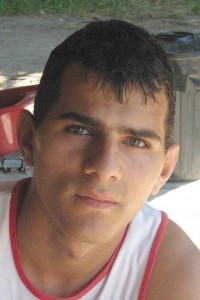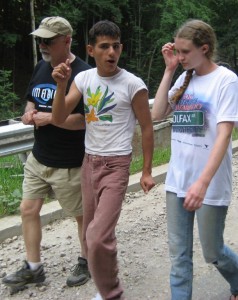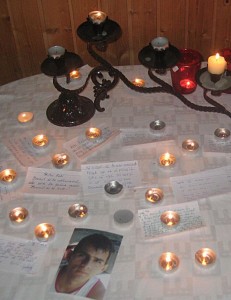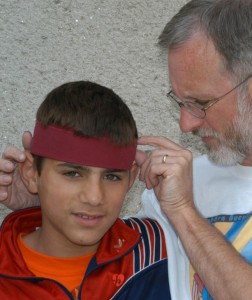Singing. Splashing. Swings. Relay races. Handcrafts. Crazy skits. Long walks. Quiet talks. Evening slideshows from the day. Bonfires. Bedtime pranks.
 Camp days mean all these things. This summer was the 13th year for our teams from Colorado leading FCE summer camps, and we’ve enjoyed all these activities with our youth. Through the years we’ve truly bonded as an extended “family,” since the majority of our team members and campers return year after year. Along with the fun there are hard things to share, as our campers come from the hardest of circumstances and bear the inner wounds of abandonment.
Camp days mean all these things. This summer was the 13th year for our teams from Colorado leading FCE summer camps, and we’ve enjoyed all these activities with our youth. Through the years we’ve truly bonded as an extended “family,” since the majority of our team members and campers return year after year. Along with the fun there are hard things to share, as our campers come from the hardest of circumstances and bear the inner wounds of abandonment.
This year, our first camp week included an activity we have never done before, and would have never anticipated in years past. As the sun was setting on the second night, we held a memorial service for one of our young friends no longer with us.
“Will you remember me?” is a question we often get from our kids. “You won’t forget, will you?” In their best moments, they know. Because we return again and again, they have come to trust the perseverance of our care and the resilience of our relationships. But their wounds are deep; at best only partially healed. “If I die no one will notice… no one will care,” is a cry we also hear in moments of distress.
This lament seemed to be confirmed for them with the death of our own Robi Canelaş last year. Mystery surrounded the end of his life. No one informed his orphan friends, who were his only real family. They simply heard rumors of his passing and hasty burial in another city. Stories conflicted, though all involved an official diagnosis of “cancer” that followed a series of beatings. There was no funeral, though one story involved a kindly local priest who paid for a casket from his own money, which seemed a scrap of comfort.
 “It is true,” many of our youth concluded. “No one will remember us.”
“It is true,” many of our youth concluded. “No one will remember us.”
“But you remember Robi,” we reminded them. “And if no one will make a memorial, you can. You can!”So in the dining room at camp, they did. In the fading light, in front of a poster of Robi we’d brought, they lit candles and placed scraps of written memories. They led us in the camp songs Robi enjoyed. They prayed prayers of remembrance and gratitude. There were funny memories. There were ample doses of anger and longing. Robi had suffered, they said, all his life and terribly at the end. I remarked aloud that it seemed every single person said “Robi was truly my friend.” He had been a light in each life. Some spoke of their trust in the promise of seeing him again.
There was no pastor or priest. Or rather, there was a room full of priests, officiating a sacred time that will not be forgotten.
Back at the orphanage after camp, someone pulled me aside. He hadn’t been to camp, but had heard. “Robi wasn’t such a good person, you know. He lied and he stole. That’s why he was beaten.”
 “Ştiu,” I replied. I know.
“Ştiu,” I replied. I know.
Every person in that room at camp knew, and needed no reminding. What we needed reminding about was the preciousness of every single fragile and complicated life. Robi’s life was a mix of pain and joy and hurt and healing. It’s the one life he got to live, and we did well to mark his brief span of years with that holy hour of tears and laughter and genuine appreciation.
– Scott Dewey, Colorado (USA) Team
